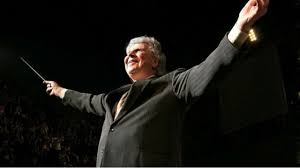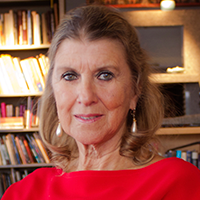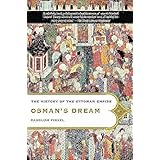Thursday, September 16, 2021
A skinny 18-19 year old boy… He is digging a big hole in the ground with a digging shovel in his hand. When the pit is deep enough, a booted command sounds: “Get in!” When the boy and his friends enter that big pit, bullets begin to rain on them. The tree-tall boy’s name is Mikis Theodorakis. In German-occupied Greece…
A burly man dressed as a priest. Black robe on his back, a song on his lips, not a prayer… His desire to blend into the darkness is because he has to hide. The man hidden in the black robes is Mikis Theodorakis. On the streets of Athens during the Colonel’s Junta…
A giant man on an empty stage… He carries the waves of the Aegean and the Mediterranean in his windy hair, in his arms that are open to embrace the world, and in his heartbreaking songs. He spreads resistance, freedom, peace, friendship, solidarity and love with his music and his savings. Thousands of hearts respond to his call with one voice. The giant on stage is Mikis Theodorakis. The year is 1986. In Istanbul…
His first visit to Istanbul was his first concert in Turkey. The fascist coup of September 12 was upon us. We were in the cutting edge times. In those days, the danger and threat of defending peace, friendship and solidarity was upon us. And we were trying to establish the “Turkey-Greece Friendship Association” in those days. The leaders are Yaşar Kemal, Aziz Nesin, Zülfü Livaneli… First we were a committee, then the association: Ekrem Akurgal was the first president; one of the two general secretaries is Demirtaş Ceyhun and the other is me… I worked hard as a soldier of the association. Since that day, it’s like we’ve never been apart.
Roads of Revolution
He was a revolutionary: in thought, in life and in music… His political personality and his passion for music never fell apart.
The son of a Cretan father and a mother from Urla (He said: “What happened between Çeşme-Urla road happened” Mikis was born in Chios in 1925.) He gave his first concert at the church at the age of 7, singing a hymn. He composed his first songs at the age of 12. At 16 he formed his first orchestra. At 17, he recognized Beethoven and the torture. At the age of 18 he composed his first symphony.
He decided at a young age: He would seek universal harmony. That is, the fit. His greatest passion was to seek and find harmony in the earth, in nature, in society and within himself.
When World War II broke out, Theodorakis was 15 years old and a member of the Nationalist Youth Organization. His “discoveries” other than Beethoven were classical Greek tragedies and Marxism. In the first he found all the definitions of humanity, in the second he found social harmony… It was the natural result of these discoveries that he joined the resisters!
The Italians arrested him first. Then the Germans came, sentenced him to death; then civil war…
Between the arrests, the Athens Conservatory… It equipped its classical music education with tales and stories told by the mother, poetry and philosophy books by the father, Rembetiko, Byzantine hymns and Anatolian melodies. He made Sophocles, Europides, Seferis, Elitis, Ritsos, Lorca his companions.
Even though he was arrested or tortured, his music was still alive… Neither prison sentences, camps, his imprisonment in a mental hospital, nor the breaking of his legs during torture, nor exile will prevent his search for universal harmony, namely his way of thinking, strength of resistance and music.
In my first encounter, I asked: How did he endure death, torture, and solitary? The answer was unequivocal: “By constantly producing songs of resistance.”
He said aloud when he had no paper or pen, his voice was picked up by other cells, the sound passing from cell to cell crossed the iron bars, spread throughout the country, crossed the borders. And “inside” Theodorakis, bound and chained, spread the fire of resistance and freedom “outside”.
It was inevitable that the songs smuggled from “inside” to “outside” would reach Turkey. It has reached. After March 12 in Turkey, Zülfü Livaneli listened and sang the songs of Theodorakis “inside”, like every other young person in prison. He drew strength from them. Their relationship would develop into a unique friendship.

Home was the Earth
I have often been in different countries with the Maestro, who is a legend who revolutionized the world of music, composed countless works, many symphonies, ballet music, operas, and made the world dance with his sirtaki music. In his house overlooking the Acrepol in Athens… At my house in Istanbul… In the labyrinths of Ancient Ephesus… In the operas of Bilbao and Athens… In congress halls, meetings, small family and friend gatherings, tens of thousands of in gigantic concerts that bring together…
He was always the same person. A humble, big hearted, friendly, very talented, unique person who loves life!
Every time he came to Istanbul, he would always say, “It’s like I’m at my own home”. His home was earth. This place was a source of happiness for him: he praises the chicken breast dessert, which has become a “myth” from his mother; After the concerts that lasted for four hours, he started to sing again at three in the morning in the tripe shop he went to; While visiting Hagia Sophia, he would caress the mosaics and start singing Byzantine hymns, ignoring the bewilderment, with his huge arms stretched out in the middle of the dome.
I traveled the streets of Istanbul, Izmir, Kusadasi, Athens a lot with him. In Spain, on the streets of Bilbao… He invited me to the world premiere of his opera “Medea”. Of course I went. I was thrilled with the words, “How happy we are, we have Callas and Leyla Gencer”… It was as if I was running after a mischievous child who never rested, who grew his joy of life and spread it around. I was experiencing things that I had not seen before, had seen, or heard but had not heard before. As he ran, talked, resisted injustice, and sang our songs together, the world was getting better and people were getting better. The earth was turning into a miracle.

Strengthened From Music
I’ve written a lot about Theodorakis. I never forget, “Maybe we met in another lifetime and talked about these issues. He used to tell me not only to listen to me, but also to his heart.” He used to tease me at every meeting: “If there is anything you want to ask while writing your article, ask. I will answer from Athens, you will hear it in Istanbul. We carry on the conversation with telepathy, heart-to-heart.”
Theodorakis’s coming and giving concerts here in Turkey caused storms in Greece, causing him to be described as a “traitor”. The same attitude was valid for us, the people of this region, who strive to develop a culture of friendship and peace with Greece in Turkey.
“I made a once-in-a-lifetime decision, the decision to seek harmony… What I am doing now is part of this search for harmony. It is inevitable for Turkey and Greece to live in peace and friendship, not only for us, for the two peoples, but also for universal harmony…”
When I asked, “Aren’t you afraid to confront everyone in Greece”, that warm childish smile spreads over his face again, “Not everyone… Only those who lie… I am against those who fuel the enmity of the two peoples for their own political interests!” he would say.
He was against militarism. He would shout to the generals: “You have tanks. I have my songs. I am stronger than you. Because time makes weapons old, and songs make them stronger.”
The peace in the heart and the peace in the songs became synonymous with him. I didn’t even have to ask where he got this power from!
“I get my strength from my music. The songs I compose are for all peoples who find the truth in them. Like high mountains, no one can move them with lies and pressure! Those who try to ignore them are temporary. But these songs will live forever!”
It will be exactly as he said.
The fact that Greece declared three days of national mourning after Theodorakis’ death was a sign of the respect and love shown by the states to art and artists. Civilization too…
Hey Mikis Theodorakis! My dear friend Theodorakis, who put the harmony in his heart into life and music! So glad I have you. I am eternally grateful to you for the hope you have planted in our palms. You know that never-ending enthusiasm, belief, longing, power of resistance, hope for peace, and our applause. Our applause never ceased, our applause never ceased. You know that too.























